Hormone Imbalance in Women

Are you tired? Do things just not feel right?
Is something going on? You know something is happening, but you just can't figure out what it is?
It could be a sign of a hormonal imbalance, a problem striking more and more women every day!
Do I Have a Hormone Imbalance?
Most people living in today’s society have a hormone imbalance. If you do experience any of the symptoms below, you should be checked out by physician. All of these point to a hormone imbalance may indicate different health concerns.
Unfortunately, most hormone imbalances go undiagnosed. Testing your hormone levels is a complicated procedure, one not often requested in blood tests or covered by insurance. But, we think they should be tested.
If you experience any of the signs and symptoms below, you may have a hormone imbalance.
- Unexplained weight gain or loss
- Difficulty sleeping
- Sensitivity to cold and heat
- Very dry skin and hair or skin rashes
- Irritability and anxiety
- Unexplained fatigue
- Increased thirst
- Depression
- Headaches
- Reduced sex drive
- Infertility
- A bulge in your neck
- Heavy, irregular, or painful periods
- Osteoporosis (weak, brittle bones)
- Hot flashes and night sweats
- Vaginal dryness
- Breast tenderness
- Uterine bleeding not associated with menstruation
- Increased hair growth on the face, neck, chest, or back

What Hormones Cause the Imbalance?
One of the biggest problems with having a hormone imbalance is that once one hormone becomes disturbed, all of them eventually go out of kilter. These disruptions can be anything from an elevated insulin level over time to chronic stress or depression.
Here are some of the hormones that help us navigate the world. You’ll recognize some of them, but others might be unfamiliar.
- Serotonin
- Dopamine
- Estrogen & Progesterone
- Testosterone
- Thyroid Hormones & Thyroid Stimulating Hormone (TSH)
- Cortisol
- Leptin/Ghrelin
- Melatonin
- Insulin
- Prolactin
- Adrenaline
- Growth Hormones
- Oxytocin
- Antidiuretic hormone
- Calcitonin
- Glucagon
- Aldosterone
- Glucocorticoids
- Adrenalin & Noradrenalin
The Root Causes of Hormone Imbalance
While some illnesses can cause a hormonal imbalance, the most common causes of having your hormones thrown into disarray is a poor diet and stress. We live in a society that values convenience and speed, meaning we often choose fast food and employment that causes problems for us. Fortunately, can combat those with the right supplements, lifestyle, and food.
Some other causes include (but not limited to):
- Chronic or extreme stress
- Type 1 and type 2 diabetes & insulin disruption
- Hyper and hypothyroidism
- Being overweight
- Hormonal replacement or birth control medications
- Steroid medications
- Tumors, cysts, and cancer and their treatments
- Cushing's syndrome (high levels of the hormone cortisol)
- Addison's disease (low levels of cortisol and aldosterone)
- Injury and illness
- Phytoestrogens, naturally-occurring plant estrogens found in soy products
- Exposure to toxins, pollutants, pesticides and herbicides
- Puberty
- Menstruation
- Pregnancy, childbirth, and breast-feeding
- Perimenopause, menopause, and post-menopause
- Polycystic ovary syndrome (PCOS)
Medical Treatments for Hormone Imbalance
Modern medicine doesn’t treat hormone imbalances very well. There are some ways of testing to determine if one or more of the hormones are out of alignment, however most doctor's diagnosis based on the symptoms.
Here are some of the ways doctors test for imbalances in your hormones:
- Saliva testing: measures estrogen, progesterone, testosterone, cortisol, and DHEA levels at the cellular level.
- Blood testing: measures free and total hormone levels
- Urine testing: identifies each hormone present for 24 hours and at what levels. This is the most all-encompassing hormone test.
- Follicle-stimulating hormone testing: measures the hormonal status of premenopausal women.
Once the diagnosis determined, doctors often reach for prescription medications to combat a hormone imbalance. Unfortunately, many of these medications cause their own hormonal imbalance issues and run the risk of other diseases.
Treatment options for hormone imbalances include:
- Hormone control or birth control
- Vaginal estrogen
- Testosterone replacement
- Hormone replacement medications
- Prescriptions for specific symptoms
- Metformin for diabetes
- Levothyroxine for hypothyroidism
Natural Relief for Hormonal Imbalance
Fortunately, options are available to help balance your hormones naturally without resorting to medications. You should always use caution when choosing alternative medicine to combat a medical issue. In severe cases, a prescription might be preferable until a problem is under control. Then, natural medications can help the body take back over and restore balance.
Herbs for Hormone Imbalance
Most herbs gave rise to the medications as we know them. Some of these can be found easily, such as green tea and ginseng, while others are only online. Let’s take a look at some of these herbs and how you can incorporate them into your regular diet to help balance your hormones.
Green Tea
The epigallocatechin gallate, EGCG, found in green tea can help modulate the production of various androgens in the body. It can help reduce blood levels of estrogen and other hormones that have been directly tied to the increased risk of breast cancer.
Most of the studies conducted with high levels of EGCG were far more than what you can get by drinking regular green tea. However, you can start by choosing good quality, loose leaf green tea and drinking several cups per day.

Ginseng
Ginseng helps stimulate our memory, and it can help with relaxation. One study shows that it may inhibit the enzymes that bind stress hormones to the receptors. By prohibiting the stress hormones from binding to the receptors, the body feels less stress.

Vitex
Vitex is one of the top herbs for women. This is especially helpful for helping to reduce the symptoms of PMS. Because many of the symptoms of PMS result from the changeover between estrogen and progesterone, which also influence the levels of serotonin and dopamine in the body, making this transition easier helps reduce the symptoms and overall effect of the different hormones in the body.

Black Cohosh
Black cohosh is a phytoestrogen that helps mimic the effects of naturally produced estrogen. Historically, it was used in America for hundreds of years to help women with menopause and menstrual symptoms. In Europe, it is one of the first remedies recommended for women with hormonal imbalances. Black cohosh suppresses the secretion of luteinizing hormone. It may also act as a pain reliever.

Red Clover
Red clover may be effective at helping postmenopausal women with balancing sexual hormones, especially testosterone, and dealing with endometrial issues. It also helps with reducing hot flashes and other menopausal symptoms.

Ashwagandha
Ashwagandha is an adaptogenic herb that helps balance the body. Some studies have shown that ashwagandha helps with balancing hormones, especially insulin levels in people with diabetes. Another study showed that ashwagandha root may be helpful and balancing reproductive hormones in diabetics.

Holy Basil/Tulsi
Holy basil is the most sacred herb in Ayurveda medicine and has been shown in multiple different studies to help balance reproductive hormones in both men and women. It's also an excellent herb to help reduce stress and help stimulate the production of neurotransmitters, serotonin, and dopamine.

Evening Primrose
Evening primrose is another herb used for many hundreds of years to help women during menopause and menstruation. Evening primrose oil is a primary herb to help reduce mood swings and pain arising from premenstrual syndrome. One study shows that evening primrose oil is effective for improving depression and irritability that comes from pain and tenderness and fluid retention.

Supplements – Vitamins & Minerals
We need a wide variety of vitamins and minerals in our diet, but someone more helpful when dealing with our hormones.
Vitamin D
So many women are deficient in vitamin D. Vitamin D directly converts into the active hormones in the calcitriol family. It's essential for calcium control in the body and helps efficiency with the immune system. It also helps regulate the endorphins and neurotransmitters in the brain.
Collagen
Eating a protein to affect your hormones may seem a little odd, but it does help. Collagen can help offset cortisol in the body, helping to relieve stress. It's also anti-inflammatory so that you can feel less pain.
Probiotics
The more we learn about probiotics, the more we realize just how much it benefits us. Probiotics produce some hormones, such as estrogen and phytoestrogens, and they have a significant role at recycling and metabolizing hormones as they move through our digestive system.
In several new studies, probiotics influence the production and levels of estrogen in the body, often bringing levels back into balance. Having healthy probiotics in our gut may also be able to help balance glucose levels in people with diabetes.
Magnesium
Magnesium involves over 300 processes in the body and essential for the metabolism and production of every single hormone throughout our system. One of the most common uses is to help balance the role of progesterone and estrogen during our monthly cycles. It helps relax our nervous system and reduces the activity of the hypothalamic-pituitary-adrenal axis which governs anxiety and our ability to cope with stress.
A Good Diet
Many of our modern health problems originated from a poor diet. So many food products have been modified, preserved, an adulterated that our bodies barely recognized it as food anymore. Nutritional deficiencies cause many problems.
There are three big things you can do to improve your diet right now!
Veggies
Fruits and vegetables are the sources of the majority of the nutrients we consume. By choosing to eat at least five servings of fruits and vegetables every day, you can help your body get in the vitamins and minerals it needs to be healthy.
Most of the healthy diets today focus on eating a lot of fruits and vegetables. These include ketogenic diets, paleo, vegetarian, and locally-focused. Many nutritionists believe 2/3 to 3/4 of your food intake should be fruits and vegetables.
Reduce Sugar
It’s no surprise that the rise of refined sugar also matched the increase in obesity, heart disease, and diabetes in our society. By cutting out refined sugar and many of the processed foods it's contained in, you significantly reduce your risk of diseases.
Your pancreas and the insulin it produces benefit most of all. When you consume a lot of sugar, your pancreas has to work overtime to produce insulin to counteract the sugar. And reducing the refined sugar can you give your pancreas a break.
Healthy Fats
You should not be afraid of fats, especially since fats are the essential components of our hormones. When you eat healthy fats, you provide good quality building blocks for all our hormones.
Good healthy fats come from natural sources. Choose minimally refined fats and oils such as butter, coconut, avocado, peanut, nuts and seed, and olive oil. These oils and fats provide a wide variety of unsaturated fats and healthy saturated fats.
Avoid oils that are highly refined and adulterated, and high in omega-6 fatty acids, such as canola and vegetable oil. These oils tend to have higher levels of trans fats, pesticide residue, and an unhealthy balance of polyunsaturated fats linked them to heart disease.

Exercise for Health
Exercise is an excellent antidepressant and shown to reduce high levels of the stress hormone cortisol and increase the production of endorphins, serotonin, and dopamine. Plus, as you exercise, you improve the strength of your body and appearance. This makes many people happy.
Meditation & Other Alternatives
Meditation and prayer help relieve stress. By relieving the stress, you reduce the levels of cortisol in your system, and that helps mitigate hormonal imbalance. Both are easy to do by starting with 5 minutes per day. As you increase, you reap the benefits of feeling calmer, happier, and more balanced in your life.
Many other alternative medicines help reduce stress and improve your health. Be sure to try:
- Massage
- Yoga
- Acupuncture
- Reiki
- Aromatherapy
- Journaling
- Animal Therapy
- Music
- Breathing Exercises
- Sauna
- Hiking and Being in Nature

Life with Hormone Balance
You don't have to live with hormonal imbalance, especially when there are so many treatments that can help restore a better way of life. We highly recommend visiting a doctor who can properly test and recommend natural remedies for restoring hormone balance, but also can supplement with medications if needed.
Fortunately, you can combine many of the herbs and lifestyle habits to give you your body the best chance of restoring its hormones naturally. By taking care of yourself, lower your stress, eating healthy, and using natural remedies, you can give yourself the best chance of restoring your health and living an exciting and full life.
- Nutracare Team

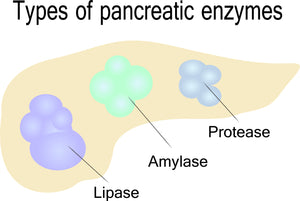
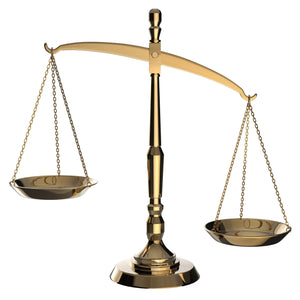
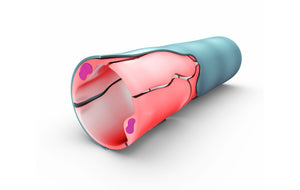
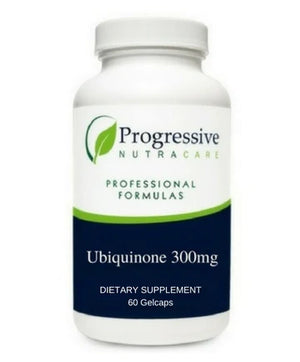

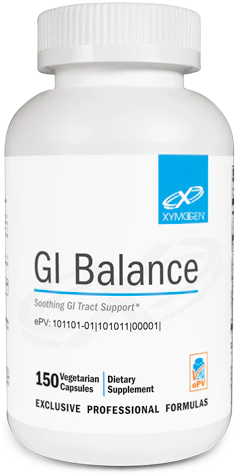
Comments 0